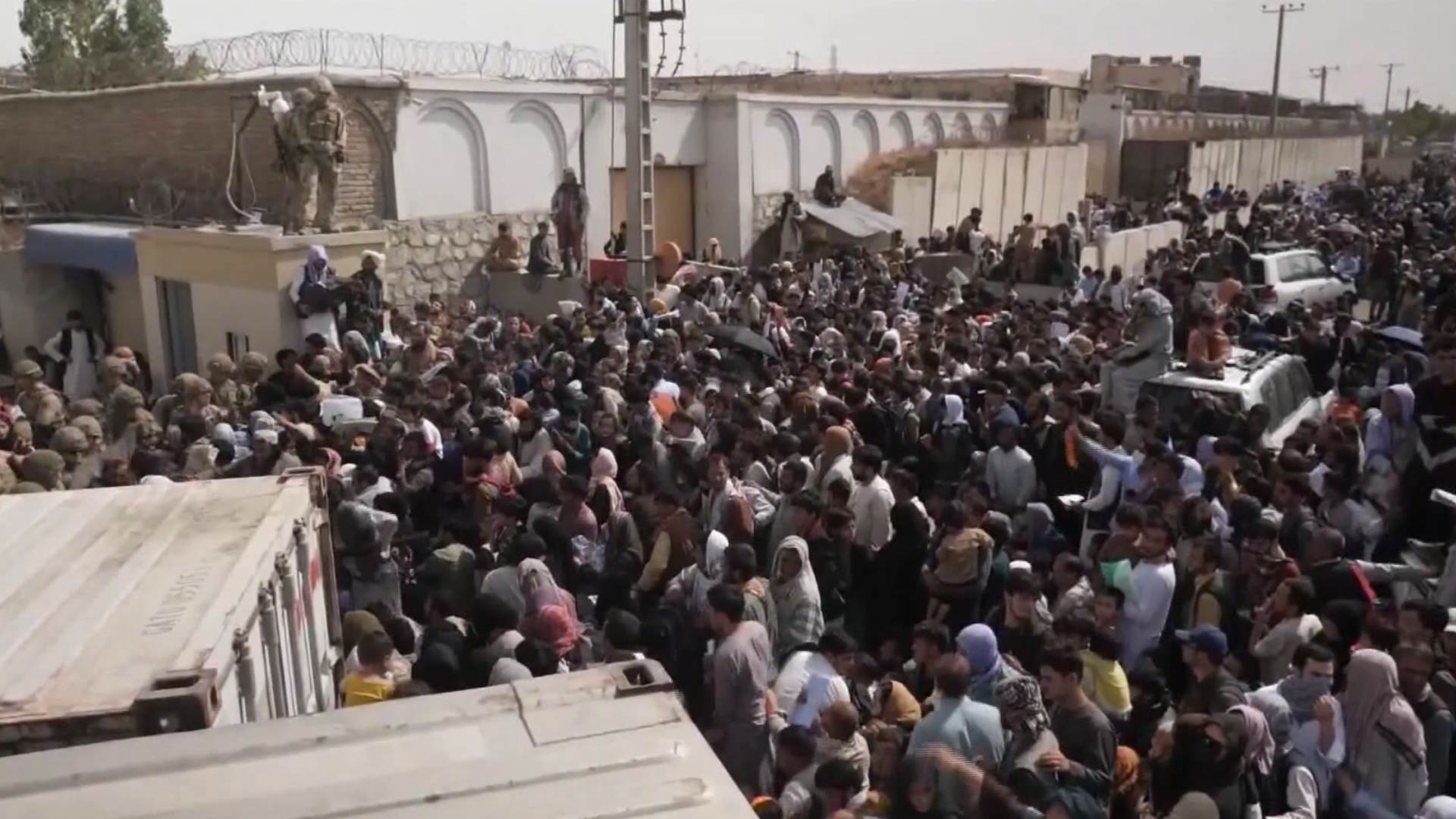SPOKANE, Wash. — Eastern Washington's congresswoman called the hurried American withdrawal from Afghanistan "unacceptable" and blamed President Biden's decisions for leaving troops vulnerable to attacks, such as the one that killed multiple troops at the Kabul airport early Thursday morning.
Rep. Cathy McMorris Rodgers (R-Wash.) spoke to KREM in an exclusive interview that happened after the attack had taken place but before we knew Americans had been killed.
Excerpts from the interview are transcribed below and have been edited for clarity:
Rep. Cathy McMorris Rodgers: I believe that this is a direct result of the failed leadership of President Biden. And it is resulting in our troops being less safe. It's resulting in the United States of America being less safe.
KREM 2 Political Reporter Casey Decker: So do you think then that perhaps the evacuation withdrawal should have happened more slowly?
CMR: My sense is that the Biden administration, unfortunately, has become more concerned about a date certain and fulfilling that date certain, rather than making sure that the conditions on the ground that had to be met, in order for us to withdraw, were actually met.
That was the whole reason that we went in the first place, was to ensure that this region would not be a staging ground for more terrorist activities, and to leave the way that we are right now, to be so focused on a date certain, rather than actually the mission and finishing the mission and doing it in the right way, I believe is a failure of leadership. And it's unacceptable.
KREM: At this point, what is your level of confidence that everyone we want to get out of Afghanistan will be able to?
CMR: The Aug. 31 deadline is looming. I believe that if it means delaying that deadline, we should be considering that in order to make sure that the goal of getting every American, Afghan interpreter, and the others that are special visa holders out of the country, and making sure that we live up to our priority of leaving no one behind.
KREM: Would you also be in favor of any sort of redeployment?
CMR: I believe that all options should be on the table, that what's happening right now is devastating. It is a failure of leadership. That it is going to be a scar on the United States of America. And therefore we need to take the time, we need to reevaluate…and I'm asking for the Biden administration and the Defense Department…and the State Department to be putting those options on the table.
I believe that the way that this withdraw took place did not set up the Afghan security forces, the Afghan government for success. And unfortunately, now, we're seeing a lot of our work unravel, and the Taliban take control of the region.
KREM: Seeing the Taliban take control again so quickly, do you think that setting a goal of preventing the Taliban from retaking control was ever a realistic goal?
CMR: Well, I know that we had made significant progress, that we were seeing… where we had more people in Afghanistan that wanted a different future. And I think especially about the women and the girls. And I had the chance to go to Afghanistan several years ago now, but to hear their dreams and their hopes… it was a different future.
KREM: If you're an interpreter trying to get on a plane and get out of Afghanistan right now, what is that process look like?
CMR: That process is very confusing and it is a frightening process. When you think about trying to make your way to an airport where the gates are closed right now, and having your name on a list, it is a frightening prospect, and it is a very difficult process trying to get out of Afghanistan right now.
KREM: Do you think we'll be able to help some of these folks resettle here?
CMR: Yes, actually, that's already been happening. I've had the opportunity to sit down with Afghan families that are already here in eastern Washington.
We're working with people from Eastern Washington that are trying to get their interpreters out, trying to get their family members out of Afghanistan. We are working every day on trying to get their names on lists. It's been difficult to get answers from the State Department. It's been very slow. But we're pushing every day trying to get as many of these people out as possible.

